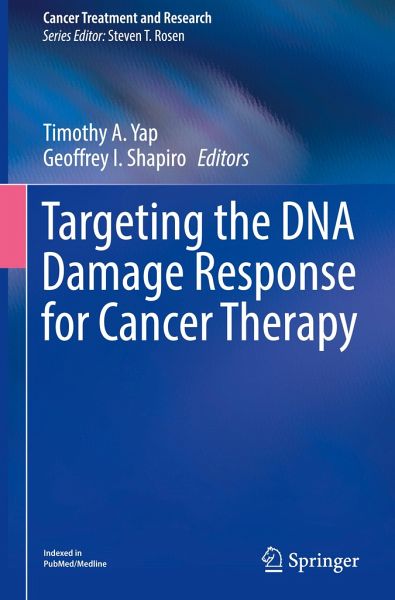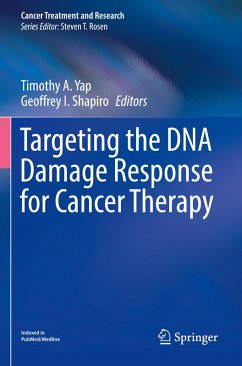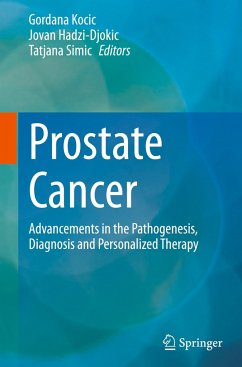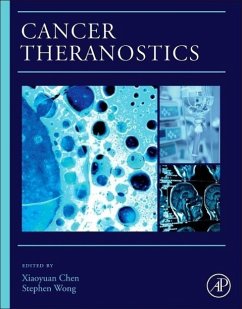
Targeting the DNA Damage Response for Cancer Therapy

PAYBACK Punkte
49 °P sammeln!
This book discusses the latest developments in Poly (ADP-ribose) polymerase (PARP) inhibitor drug development. It focuses on the translational and clinical development of the latest drugs, as well as the evidence for regulatory approval of PARP inhibitors in multiple different molecular subtypes and tumor indications. The most-up-to-date information on basic scientific research on DNA repair pathways and the DNA Damage Response (DDR) is also covered. Every chapter contains insight into the preclinical, translational along with clinical aspects of a specific DDR inhibitor with key and expert op...
This book discusses the latest developments in Poly (ADP-ribose) polymerase (PARP) inhibitor drug development. It focuses on the translational and clinical development of the latest drugs, as well as the evidence for regulatory approval of PARP inhibitors in multiple different molecular subtypes and tumor indications. The most-up-to-date information on basic scientific research on DNA repair pathways and the DNA Damage Response (DDR) is also covered. Every chapter contains insight into the preclinical, translational along with clinical aspects of a specific DDR inhibitor with key and expert opinion points reinforcing the most important concepts detailed to enable the reader to develop a deep understanding of the topic.
Targeting the DNA Damage Response for Cancer Therapy comprehensively reviews the application of PARP and other DDR inhibitors across oncology disciplines. Therefore, it is a valuable resource for all medical professionals and researchers who use or who are researching the use of these inhibitors on a day-to-day basis.
Targeting the DNA Damage Response for Cancer Therapy comprehensively reviews the application of PARP and other DDR inhibitors across oncology disciplines. Therefore, it is a valuable resource for all medical professionals and researchers who use or who are researching the use of these inhibitors on a day-to-day basis.












